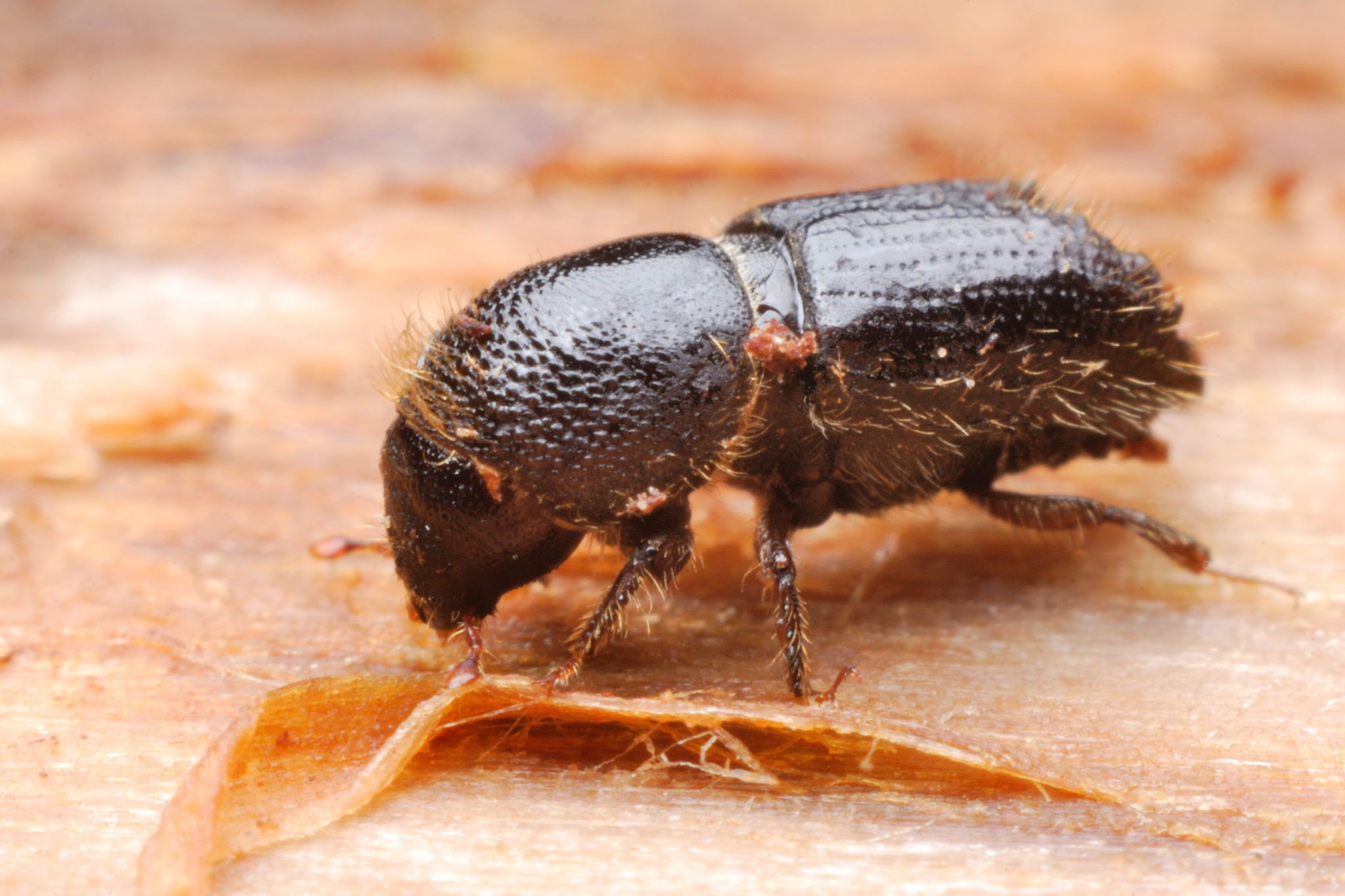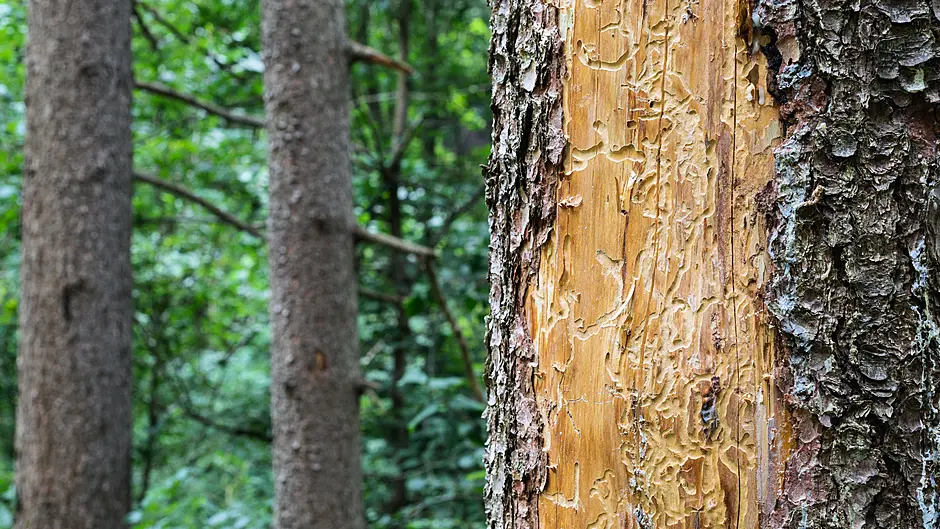NEW restrictions will be placed on imported Scottish forestry, the Department of Agriculture, Food, and the Marine said, as efforts to keep the great spruce bark beetle out of Ireland are stepped up.
Minister of State at the Department of Agriculture, Food and the Marine, Senator Pippa Hackett said the measures will provide certification of coniferous roundwood (spruce) from the Pest Free Area (PFA) in Scotland to Ireland.
The measures are intended to provide additional protection for Irish forests from the potential importation of pests. The spruce bark beetle has devastated forests in England and there are fears of importing the disease from Scotland.
 A close-up image of a bark beetle, which tunnels into the bark of trees to lay eggs. Their young then feed on the inner layers, weakening and often killing the tree.
A close-up image of a bark beetle, which tunnels into the bark of trees to lay eggs. Their young then feed on the inner layers, weakening and often killing the tree.
Ireland currently imports from the west of Scotland and though the area has been deemed as still disease-free, its path through the UK is concerning. Spruce forests account for approximately 65% of the private grant-aided forest estate, which is predominantly owned and managed by farmers.
‘This is the equivalent to nearly 200,000 ha of forest land and shows the potential risk to the Ireland’s forest industry should the spruce bark beetle take hold,’ IFA president Francie Gorman told a Joint Committee on Agriculture, Food and the Marine meeting on the issue last month.
‘A spruce bark beetle outbreak would cause extensive economic loss to the forest industry, but it would be farmers that would bear the brunt of the economic consequences.’
‘The presence of Dendroctonous micans (spruce bark beetle) in Scotland is a real concern. My Department’s priority has been to ensure that any imports are pest free, so now is an appropriate time to take these additional steps and to reduce the area within the Scottish PFA from which logs can be exported to Ireland,’ said Minister Hackett.
The new measures will ensure that no further certification will be issued for the movement of spruce roundwood to the island of Ireland originating from any area inside the PFA that falls within a 35km buffer zone imposed around the most recent findings of the beetle.
The new certification measures will come into effect from March 1st. Any shipments of roundwood originating from the buffer zone must arrive in Ireland and have cleared the port/pier before April 1st.
After 12 months there will be a presumption to expand the buffer by a further 10 km. The final decision to make this change will be agreed between Scottish and Irish forestry authorities.
While Ireland’s native ash has been devastated by dieback, many regulated plant pests and diseases found elsewhere are still not present in Ireland.
‘The Department implements a strict plant health regime in order to protect this favourable plant health status,’ the Minister said.. Ireland’s Protected Zone status (pest freedom) includes six bark beetle species.
Last week, The Southern Star highlighted the views of Ger O’Sullivan, of Leap-based O’Sullivan Tree Services, who says urgent research is now needed to establish why some evergreen trees, which previously thrived here, are being wiped out.
Ger wants to highlight issues he is seeing with Scots pine, noble fir and larch that have been slowly emerging over the past two years, but which are now gathering pace in West Cork.
‘We’re also seeing problems with oak, chestnut, beech and Lawson cypress. It’s hard to kill an evergreen tree, so we don’t know what’s happening,’ he said.
‘We need to know what’s killing these species. Seeing something like a big beech tree, or older trees, dying is very worrying. If things keep going at the pace they’re at, it will change the landscape of West Cork.’










